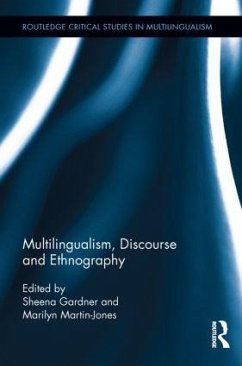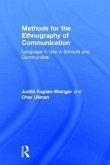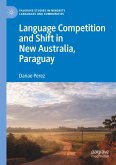The last two decades have seen a rapidly growing interest, internationally, in multilingualism and multilingual literacy and in the ways in which multilingualism is represented in the media and in public discourse. This is largely due to the significant linguistic, cultural and demographic changes that have been ushered in by globalisation, transnational population flows, the advent of new technology and the changing political and economic landscape of Europe and the accession of new nation-states to the European Union. In addressing the changing field of multilingualism, this volume hopes to: to focus on cutting edge research on multilingualism which incorporates critical, interpretive perspectives to exemplify the range of approaches to description and analysis which are currently employed within this strand of research on multilingualism to consider the methodological issues which arise in particular kinds of studies in particular sociolinguistic spaces.
Over the last twenty years, sociolinguistic research on multilingualism has been transformed. Two processes have been at work: first, an epistemological shift to a critical ethnographic approach, which has contributed to a larger turn toward post-structuralist perspectives on social life. Second, the effects of globalization-transnational population flows, new communication technologies, transformations in the political and economic landscape-have sparked increasing concern about the implications of these changes for our understanding of the relationship between language and society. A new sociolinguistics of multilingualism is being forged: one that takes account of the new communicative order, while retaining a central concern with the processes in the construction of social difference. The contributors to this volume have been at the forefront of these epistemological shifts. They write here about the conceptual and methodological challenges posed by these shifts, and the profound changes that we are witnessing in the late modern era.
Hinweis: Dieser Artikel kann nur an eine deutsche Lieferadresse ausgeliefert werden.
Over the last twenty years, sociolinguistic research on multilingualism has been transformed. Two processes have been at work: first, an epistemological shift to a critical ethnographic approach, which has contributed to a larger turn toward post-structuralist perspectives on social life. Second, the effects of globalization-transnational population flows, new communication technologies, transformations in the political and economic landscape-have sparked increasing concern about the implications of these changes for our understanding of the relationship between language and society. A new sociolinguistics of multilingualism is being forged: one that takes account of the new communicative order, while retaining a central concern with the processes in the construction of social difference. The contributors to this volume have been at the forefront of these epistemological shifts. They write here about the conceptual and methodological challenges posed by these shifts, and the profound changes that we are witnessing in the late modern era.
Hinweis: Dieser Artikel kann nur an eine deutsche Lieferadresse ausgeliefert werden.








